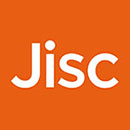Nudge: Non-Traditional Promotion Means as an Alternative to Face New Regulatory Challenges without State Intervention
Abstract
Administrative Law is, in our times, also a fundamental tool to align public and private interests. To meet this goal it is key to reduce direct state intervention in economic activities and design regulation to replace coercion by persuasion. The State (and especially the Executive Branch) has the challenge of regulating to convince. In this sense, promotion, as a technique of administrative activity, is the means that holds the greatest potential. This article proposes a review of the classic figure of promotion to help it be considered as an alternative to reduce direct state intervention in private activities, without neglecting general interest objectives. Resorting to the help of behavioral sciences and, particularly, to the figure of “nudge”, it will be shown that the State, in addition to imposing costs or sanctions to encourage or discourage certain behaviors, has the possibility of motivating people to do what is convenient for the common good. Many governments around the world are successfully implementing this type of regulations that seek to persuade without restricting personal freedom. Argentina should not be an exception.
Downloads
References
Aciarri, H. (Dir.). (2017). Derecho, economía y ciencias del comportamiento. Ediciones SAIJ. http://www.bibliotecadigital.gob.ar/items/show/1713.
Agamben, G. (2004). Estado de Excepción (homo sacer II, 1). Pre-Textos.
Aguilar Valdez, O. (2016). El control judicial de razonabilidad de las medidas de intervención y regulación económica. En Control público y acceso a la justicia. Jornadas organizadas por la Universidad Austral (Tomo I, pp. 313-354). Astrea.
Aguilar Valdez, O. (2019). Regulación económica y responsabilidad del Estado. Pautas jurisprudenciales de la Corte Suprema de Justicia de la Nación. En Tawil, G. S. (Dir.), Responsabilidad del Estado (pp. 792-879). Abeledo Perrot.
Aguilar Valdez, O. (2020). ¿Salud pública vs. Estado de Derecho? Reflexiones sobre el Estado Sanitario y Administrativo de Excepción. La Ley, 25/05/2020, AR/DOC/1639/2020.
Alberdi, J. B. (1858). Sistema Económico y Rentístico de la Confederación Argentina según su Constitución de 1853. Casa Editora Pedro García y Cía. http://www.bibliotecadigital.gob.ar/items/show/1301.
Barra, R. C. (2002). Tratado de derecho administrativo. Editorial Ábaco de Rodolfo Depalma.
Benartzi, S., Beshears, J., Milkman, C. L., Sunstein, C., Thaler, R., Shankar, M., Tucker-Ray, W., Congdon, W. J. y Galing, S. (2017). Should governments invest more in nudging? Psychological Science, 28(8), 1041-1055. https://journals.sagepub.com/doi/full/10.1177/0956797617702501.
Boulín, I. y Cadenas, E. (2018). Innovar el derecho administrativo. Bases para la mejora del sistema regulatorio y la calidad de las políticas públicas en Argentina. Escuela de Gobierno, Universidad Austral. https://www.austral.edu.ar/escueladegobierno/wp-content/uploads/2018/03/santiago-boulin-cadenas.pdf.
Buchanan, J. (1987). Consecuencias económicas del Estado benefactor. Conferencia del 27 de mayo de 1987 en ESEADE. https://riim.eseade.edu.ar/wp-content/uploads/2016/08/Buchanan-1.pdf.
Budassi, I. (2021). Ciencias del comportamiento, regulación o cómo pensamos que pensamos. Revista de Derecho Administrativo, 2021-2138, TR LALEY AR/DOC/2988/2021.
Canda, F. (2004). Régimen jurídico de la actividad de policía. En Servicio público, policía y fomento. Jornadas de Derecho Administrativo organizadas por la Universidad Austral (pp. 123-147). Ediciones RAP.
Cassagne, J. C. (2015). Los grandes principios del derecho público (constitucional y administrativo). Thomson Reuters, La Ley.
Cassagne, J. C. (4 de noviembre de 2019). Sobre las transformaciones del Derecho Público: Hacia el Estado regulador y garante. Nuevos y antiguos problemas. La Ley, 2019-F-207.
Chamatropulos, D. A. (2017). Orden público y nudges en el Código Civil y Comercial (algunos aportes desde la economía del comportamiento). Revista Código Civil y Comercial, TR LALEY AR/DOC/2621/2017.
Coase, R. (1960). The problem of social cost, Journal of Law and Economics, 3, 1-44. https://www2.econ.iastate.edu/classes/tsc220/hallam/Coase.pdf.
Comadira, J. R., Escola, H. J. y Comadira, J. P. (2013). Curso de derecho administrativo (1ª ed.). Abeledo Perrot.
De la Riva, I. (2004a). Ayudas públicas. Incidencia de la intervención estatal en el funcionamiento del mercado. Hammurabi.
De la Riva, I. (2004b). La figura del fomento: necesidad de encarar una revisión conceptual. En Servicio público, policía y fomento. Jornadas de Derecho Administrativo organizadas por la Universidad Austral (pp. 413-422). Ediciones RAP.
Diez, M. M. (1974). Derecho Administrativo (Tomo IV). Editorial Plus Ultra.
Englich, B., Mussweiler, T. y Strack, F. (2006). Playing Dice with Criminal Sentences: The Influence of Irrelevant Anchors on Experts’ Judicial Decision Making. Personality and Social Psychology Bulletin, 32(2), 188-200. https://www.researchgate.net/publication/7389517_Playing_Dice_With_Criminal_Sentences_The_Influence_of_Irrelevant_Anchors_on_Experts’_Judicial_Decision_Making.
Foucault, M. (2007). Nacimiento de la biopolítica. Curso en el Collége de Frances (1978-1979). Fondo de Cultura Económica.
García de Entrerría, E. (1962). La lucha contra las inmunidades del poder en el Derecho Administrativo (poderes discrecionales, poderes de gobierno, poderes normativos). Revista de Administración Pública, (8), 25-89. http://www.juscorrientes.gov.ar/wp-content/uploads/jurisprudencia/publicaciones-juridicas/pdf/2017/La-lucha-contra-las-inmunidades%E2%80%A6-Edua.pdf.
Halpern, D. (2015). Inside the nudge unit: How small changes can make a big difference. WH Allen.
Jordana de Pozas, L. (1949). Ensayo de una teoría de fomento en el derecho administrativo. Revista de Estudios Públicos, (48), 41-54. https://dialnet.unirioja.es/descarga/articulo/2127752.pdf.
Kahneman, D., Slovic, P. y Tversky, A. (1982). Judgment under uncertainty: Heuristics and biases. Cambridge University Press.
Kahneman, D. (2012). Thinking, fast and slow. Penguin.
Marqués de Argenson. (1751). Lettre a láuteur du Jornal économique au sujet de la Dissertation sur le commerce de M. le marquis Belloni. Journal économique (abril).
Mocoroa, J. (22 de septiembre de 2021). Vacunas obligatorias, pequeños empujones y acción estatal. La Voz del Interior. https://www.lavoz.com.ar/opinion/vacunas-obligatorias-pequenos-empujones-y-accion-estatal/.
Obama, B. (15 de septiembre de 2015). Executive Order – Using behavioral science insights to better serve the American people. https://obamawhitehouse.archives.gov/the-press-office/2015/09/15/executive-order-using-behavioral-science-insights-better-serve-american.
Salas, D. y Camus, A. (2016). La rebelión justa. Jusbaires.
Samuelson, P. A. y Nordhaus, W. D. (2010). Economía (19a ed.). Mc Graw Hill.
San Agustín de Hipona. (s.f.). Del libre albedrío (Libro II, Cap. 1.). https://www.augustinus.it/spagnolo/libero_arbitrio/index2.htm.
Santiago, A. (2022). La dignidad de la persona humana. Fundamento del orden jurídico nacional e internacional. Facultad de Derecho, Universidad Católica Argentina.
Smith, A. (1994). La riqueza de las naciones. Editorial Alianza.
Schmitt, C. (1971). Legalidad y legitimidad. Aguilar.
Sunstein, C. R. (2013). Simpler: The future of government. Simon & Schuster.
Sunstein, C. R. (2014a). Nudges.gov: Behaviorally informed regulation. En Zamir, E. y Teichman, D. (Eds.), The Oxford Handbook of Behavioral Economics and the Law (pp. 719-747). Oxford University Press. https://www.oxfordhandbooks.com/view/10.1093/oxfordhb/9780199945474.001.0001/oxfordhb-9780199945474-e-028.
Sunstein, C. R. (2014b). Why Nudge? The politics of Libertarian Paternalism. Yale University Press.
Sunstein, Cass R. (2014c). Choossing not to choose. Duke Law Journal, 64(1), 1-52. https://scholarship.law.duke.edu/dlj/vol64/iss1/1/.
Sunstein, C. R. (2018). Misconceptions about nudges. Journal of Behavioral Economics for Policy, 2(1), 61-67. https://sabeconomics.org/journal/RePEc/beh/JBEPv1/articles/JBEP-2-1-9.pdf.
Thaler, R. (2017). Portarse mal. El comportamiento irracional en la vida económica. Paidós.
Thaler, R. y Sunstein, C. R. (2008). Nudge. Improving decisions about health, wealth and happiness. Penguin.
Tversky, A. y Kanheman, D. (1974). Judgment under uncertainty: Heuristics and biases. Science, 185, 1124-1131.
Villar Palasi, J. (1954). Las técnicas administrativas de fomento y de apoyo al precio político. RAP, (14).
Waldron, J. (9 de octubre de 2014). It’s all for your own good. The New York Review. https://www.nybooks.com/articles/2014/10/09/cass-sunstein-its-all-your-own-good/.
Copyright (c) 2022 Manuel Alderete

This work is licensed under a Creative Commons Attribution-NonCommercial-NoDerivatives 4.0 International License.
This license allows the copy, distribution, exhibition and representation of the work provided authorship is acknowledged and the work is properly quoted. Commercial use of the original work or the generation of derived works are not allowed.
The authors hereby guarantee the right to the first publication of the work to the Revista Jurídica Austral.
















































